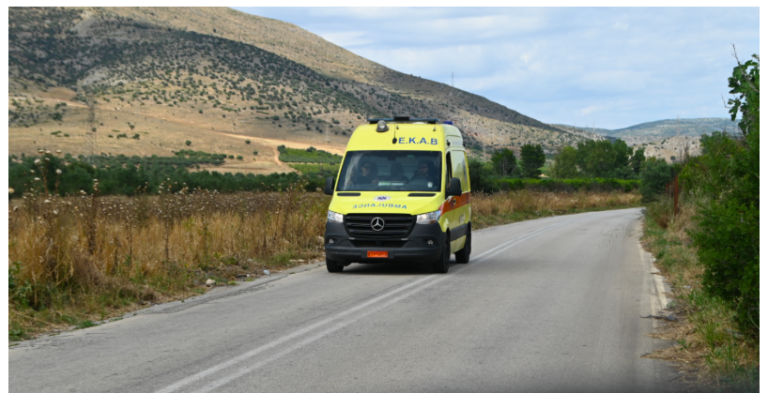The adoption of a “common” surname by Prince Pavlos and nine other members of the former royal family, spanning two generations, marks the definitive closure of one of the last unresolved chapters of the post-junta era. A chapter centered on the status, attitude, and intentions of the former royal family in Greece following the abolition of the monarchy.
The government is credited with successfully resolving a long-standing and occasionally festering ambiguity that increasingly appeared both meaningless and outdated.
The De Grèce Family’s Announcement on Acquiring Greek Citizenship
“We are deeply moved that, after thirty years, we have regained Greek citizenship. The loss of our citizenship under the 1994 law rendered us stateless, with all the implications that entailed for individual rights as well as emotional hardship.
Our father and our family fully respected the outcome of the 1974 referendum. However, the provisions of the 1994 law regarding citizenship, a product of the political circumstances of the time, were not fitting for a former head of the Greek state and an institution that faithfully served the country. Our father’s passing closed that chapter.
A prerequisite for reclaiming our citizenship was the declaration of a surname, and we chose the one our late uncle, Michael De Grèce, had selected. It is the most familiar to us, as our family never officially had a surname.
During the years we were deprived of our citizenship, we lived with the duty and honor of serving our homeland with faith and devotion, wherever we happened to be, to the best of our abilities. These same principles will continue to guide our family’s path.”
What the Government and the Former Royal Family Gained
From a political perspective, the ruling party has likely succeeded in halting the loss of voters to the more conservative, traditionally pro-monarchist wing of the right.
On a symbolic level, by compelling the former royals to concede and explicitly express respect for the fundamental constitutional article defining the nature of the political system, the government achieved a symbolic victory that is likely appreciated by centrist and progressive audiences.
In a peculiar process that unfolded over several stages throughout 2024, Pavlos managed to fulfill his father’s greatest wish—and simultaneously violate it.
On one hand, Constantine, despite his conflicts and tensions with successive Greek governments, never ceased to see himself as Greek—more precisely, as the King of the Greeks. He held the same belief about his family.
On the other hand, however, he vehemently and persistently refused to comply with the formal obligation of adopting a surname like any other ordinary Greek citizen. This step was ultimately taken by his eldest son, Pavlos.
For his four siblings and five children, but always in his father’s name. And notably, by choosing the surname “De Grèce,” a name Constantine would likely have disapproved of.
With the pivotal events of Constantine II’s death on January 10, 2023, the establishment of a communication channel between the government and the former royal family, and several informal private dinners at the famed “Ratka” restaurant attended by Prince Nikolaos and Minister Makis Voridis to finalize the details of an unconventional but discreet quid pro quo, ten members of the former royal dynasty have now acquired (or reacquired) Greek citizenship.
In summary, Pavlos—henceforth De Grèce—was required to formally commit to renouncing any intention of challenging the current form of government, defined as a presidential parliamentary democracy.
In exchange for this declaration, the state, on its part, decided to remove the relevant legal barriers and grant—or restore, depending on one’s perspective—Greek citizenship to Constantine II’s five children and five of his grandchildren.
Pavlos’ Official Statement
Pavlos and the other members of the former royal family submitted a declaration at the Athens Registry Office on Thursday morning, in accordance with paragraph 6 of Law 2215/1994, through their authorized attorney. Pavlos explicitly stated:
- He unequivocally and unreservedly respects the Constitution of Greece, accepts and recognizes the political system as a Presidential Parliamentary Democracy, and acknowledges the outcome of the December 8, 1974 referendum, which definitively and irrevocably determined the form of governance.
- He unequivocally and unreservedly renounces all claims of any kind associated with the former exercise of political authority or possession of any title.
The same statement clarified that the surname ultimately chosen by Constantine’s descendants is De Grèce.

Pavlos with his brothers Nikolaos and Philippos. Now, ten members of the former royal dynasty acquire Greek citizenship and adopt the surname “De Grece.”
The “No” of Anna-Maria
In the Government Gazette, issue number 7035, dated December 20, 2024, signed by the Minister of the Interior, Theodoros Livanios, it is officially announced that the decision was made for “the recognition of Greek citizenship for 1. (Surname) DE GRECE, (First Name) ACHILLEAS-ANDREAS, (Father’s Name) PAVLOS, (Mother’s Name) MARIE-CHANTAL.” This is followed by nine identical decisions—for Alexia, Pavlos, Nikolaos, Odysseas-Kimon, Konstantinos-Alexios, Aristidis-Stavros, Theodora, Philippos, and Maria-Olympia. These are the children of Konstantinos and the children of Pavlos. All are to be registered in the municipal registry of Athens.

Marie-Chantal with her four sons who are now gaining Greek citizenship and are obligated to serve in the Greek Army
In practice, the declaration submitted to the Civil Registry prior to the publication in the Government Gazette signifies that Pavlos and his four siblings—Alexia, Nikolaos, Theodora, and Philippos—as well as the five children of the former crown prince, will soon be able to present a passport bearing the national emblem of Greece, in addition to the Danish passport they have used until now.
Moreover, a particularly symbolic aspect of this development is that, along with citizenship, Pavlos’ male children automatically acquire the obligation to serve in the Greek Armed Forces. Given their age, they are eligible for military service if they choose to exercise any rights associated with Greek citizenship.
Pavlos, however, intends for his sons to serve in the Greek Army, a gesture considered highly honorable within the framework of patriotism that the family has consistently promoted.
At 57 years old, Pavlos has five children with his wife, Marie-Chantal: 28-year-old Maria-Olympia, 26-year-old Konstantinos-Alexios, 24-year-old Achilleas-Andreas, 20-year-old Odysseas-Kimon, and 16-year-old Aristidis-Stavros. On the other hand, an equally noteworthy aspect of the matter concerns the former queen of Greece, Anna-Maria, widow of Konstantinos.
She reportedly refuses outright to follow the process of obtaining Greek citizenship, maintaining the unwavering lifelong stance of her late husband: “I do not have a surname because neither does my family, which hails from Denmark. The Danish royal family does not have a surname.”
Anna-Maria’s position creates a new source of awkwardness and contradictions surrounding the former royal family, their true sentiments toward Greece, and how they self-identify in relation to the country.
Anna-Maria remains loyal to the beliefs not only of Konstantinos but also of her royal ancestors, as she herself belongs to the Danish royal house—as the sister of the current Queen Margrethe, daughter of Frederik IX, granddaughter of Christian X of Denmark, and so on.
However, if the acquisition of Greek citizenship leaves Anna-Maria utterly indifferent—despite her almost permanent residence in Athens, like Nikolaos—this effectively distinguishes her from her children’s choice and their “capitulation” to the Greek government and may even place her in opposition to it.
After all, in November 1994, Konstantinos took his case to the Human Rights Committee of the Council of Europe, engaging in a fierce legal battle against the Greek state, specifically demanding exemption from the obligation to bear a surname, particularly the name “Glücksburg,” which he himself described as derogatory and an outright intentional insult to his identity by the then PASOK government.

Konstantinos with Anna-Maria, Alexia, Pavlos, and Nikolaos as a baby in his mother’s arms
Throughout his life, Konstantinos never accepted the idea of taking a surname, arguing that kings do not have surnames.
Konstantinos’ Argument in 1994
In his complaint to Strasbourg, the former king of Greece argued that “Glücksburg” was a geographic name, not a family name or anything else suitable to refer to a person, let alone someone of authentic royal lineage like himself. “It’s like calling me, for instance, ‘Kensington,’” the former king said in interviews at the time.
Incidentally, the British royal family, perhaps the most famous and iconic in the world, had already found an ingenious solution to the naming issue in 1917. By decree of King George V, the dynasty adopted the surname “Windsor,” which, although a place name (just like “Glücksburg,” which Konstantinos despised), evolved into a family name.
In his 1994 appeal, the former king of Greece argued that being called “Glücksburg” constituted a violation of his private and family life and was a punitive and vindictive act against him for which the Greek government was responsible.
To support his claim, Konstantinos cited a decision by the Danish prime minister in 1983, which stated that “since the time of Christian IX, Konstantinos’ ancestor, no Danish king or other member of his family has been named ‘Glücksburg’ or carried any other surname.” However, the Human Rights Committee was not convinced.
While it ruled in Konstantinos’ favor concerning his property in Greece, it rejected as unfounded his claims of moral damage caused by the obligation to adopt a surname.

De Grece, as Michel
Another—quite paradoxical—aspect of the recent developments surrounding the citizenship of the former royal family relates to the surname itself and its winding journey through time.
The invention and use of “De Grece” is attributed to Prince Michael, or Michel, who later became a famous author of dozens of successful historical novels, with millions of copies sold worldwide. Michel de Grece, although roughly the same age as King Constantine, was considered an uncle of Constantine in the genealogical family tree.
He was the son of Prince Christopher of Greece and Denmark, the fifth and youngest son of King George I and Queen Olga, who reigned as the sovereign couple of Greece from 1863 to 1913.
King George I, a member of the Schleswig-Holstein-Sonderburg-Glücksburg dynasty, which also reigned over Denmark, was the founder of the Greek royal family and the great-grandfather of Constantine II and the great-great-grandfather of Pavlos, among others.
Michel grew up outside of Greece and first came to the country in 1964 at the age of 25, driven by an unusual sense of duty to fulfill his military obligations in the Greek Armed Forces. Naturally, he was warmly welcomed at the royal palace in Athens, and it is said that King Pavlos, Constantine’s father, treated Michel as though he were his own child.
In 1965, however, when Michael announced his intention to marry a Greek commoner rather than someone from the noble circles of the court, he came up against the rigid moral code of the royal house, which forbade such a union.
The only way for Michael to marry Marina Karella, his beloved, was to renounce his princely title and any place in the line of succession to the Greek throne.
As it turned out, Michael’s love for Marina Karella was overwhelming and unyielding. Thus, without a second thought, he relinquished his titles and aspirations to the crown, becoming an ordinary citizen.
His nephew, King Constantine, even acted as the koumbaros (best man) at his wedding ceremony, which took place in the palace. It was Constantine who placed the wedding crowns on the heads of Marina Karella and Michael, whose surname would henceforth be De Grece. In hindsight, the choice of this surname proved extraordinarily farsighted, as 60 years later, it would be adopted by Constantine’s descendants.
From another perspective, however, the name “De Grece” might not have particularly appealed to the former king himself, as it became associated with someone who chose the life of an ordinary citizen, rejecting royal grandeur, prestige, and the allure of an inherited title of nobility.
It is, therefore, somewhat ironic that the children and grandchildren of the former King of the Hellenes will henceforth bear the name conceived by someone who voluntarily and willingly detached himself from the royal household.
Moreover, Michel de Grece was the only member of the royal dynasty who did not need to flee Greece following King Constantine’s failed countercoup attempt in December 1967. Despite his close familial ties to the monarch, Michel de Grece did not attract the attention of the Colonels’ Junta.
His adoption of a worldly surname, even if foreign-sounding, served as both his shield of protection and his immunity. And 20 years ago, Michel once again became a pioneer when he went through the process of registering for Greek citizenship, which Pavlos and his relatives are now undertaking. Back then, Michel de Grece (who passed away in late July of this year) secured Greek citizenship for himself and his two daughters.

King Constantine dances with his sisters Sofia and Irene, dressed in traditional costumes.
The Finale of a Series
The removal of citizenship—and their rights to royal estates, such as Tatoi—was enacted through the so-called “Venizelos Law,” Law 2215 of 1994, as a further and final message to the former royals that they were unwelcome in Greece.
The basis of this animosity was rooted not only in the controversial actions of the young and inexperienced monarch before the 1967 coup and during the early phase of the dictatorship but certainly in the 1974 referendum on the monarchy.
The Greek people delivered a resounding verdict with 69.2% in favor of a republic without a monarchy, forcing the former royal family into permanent exile.
Although Constantine officially declared respect and submission to the will of the sovereign people, some historical sources suggest he may have been involved in a conspiracy aimed at toppling then-Prime Minister Konstantinos Karamanlis and the first democratically elected government after the seven-year dictatorship.
In the years following the referendum and their effective expulsion, Constantine and his family’s visits to Greece were treated as an unbearable nuisance—an excuse for stirring divisive dilemmas and passions, if not a threat to the restoration of the monarchy in Greece.
The climax of this “cold war” à la grecque was, of course, the farcical drama of February 12, 1981, when Constantine and his relatives were permitted to remain in the country for only six hours, even though their visit was to attend the funeral of Queen Frederica.
The saga surrounding the surname continued to resurface sporadically without ever being resolved, paralleling the tug-of-war between the former royals and the Greek state over the royal estates.
In 1991, an agreement was reached between Constantine and the government of Konstantinos Mitsotakis, which was ratified into law in 1992. However, the supposed settlement of property, tax, and other outstanding issues did not progress as planned, as PASOK returned to power in the meantime.
Some visits by Constantine to Crete and Mani provoked Andreas Papandreou’s entrenched hostility toward the former monarch, were seen as brazen provocations, and ultimately led to the revocation of Greek citizenship through Law 2215/1994.
Nevertheless, Constantine did not stop visiting Greece, traveling with a passport that no longer listed “Constantine, former King of the Hellenes,” as it had in the early years of the post-junta era, but rather “Constantine de Grecia.”
Around the early 2000s, whenever reservations were made under the surname “De Grecia” for short holidays, newspapers would often mock this newfound surname in gossip columns. A similar reaction may now be observed domestically regarding “De Grece,” though this will hardly faze those directly involved.
After all, they will continue to traverse the world, enjoying appellations such as “His Highness,” “Prince,” “Crown Prince,” and the like.
The royal title functions as an indelible brand name, something that does not apply to the late adoption of a surname. The fact that the former royals themselves have acknowledged that their titles are prohibited by the Greek Constitution or that they have no intention of leveraging them politically in Greece is almost incidental.
Ask me anything
Explore related questions





